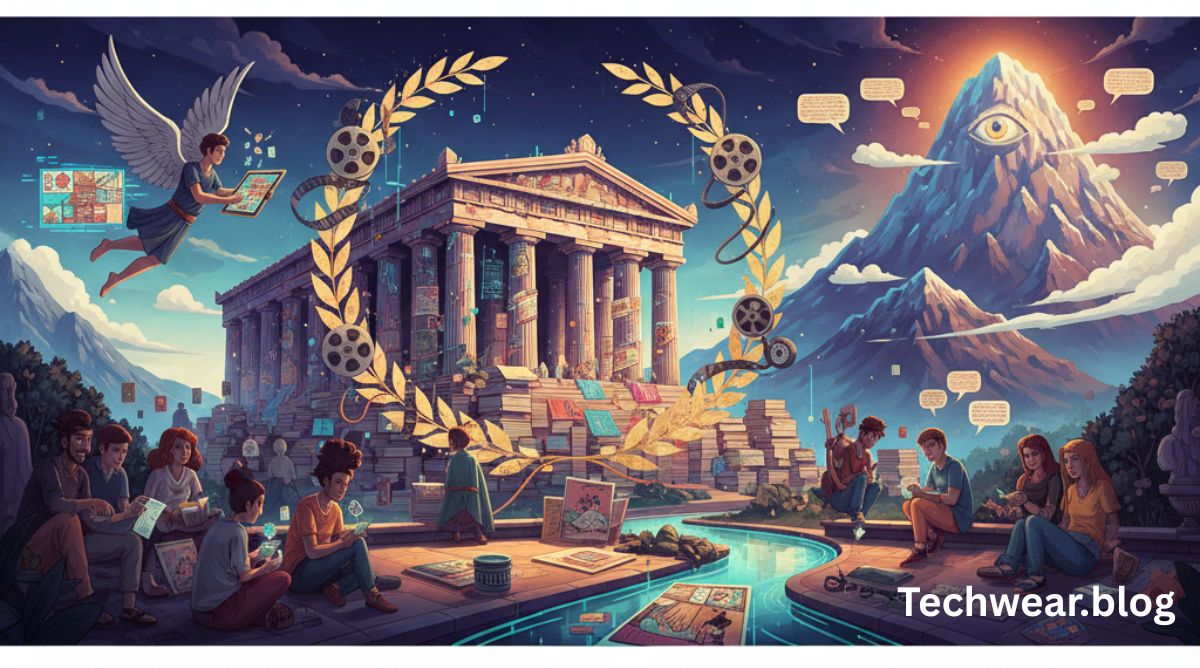Introduction to Olympus Scanlation
The world of manga has expanded far beyond Japan, becoming a global cultural phenomenon. For international fans, one of the key reasons behind this expansion was the rise of scanlation groups—fan-driven communities that scanned, translated, and shared manga in different languages. Among these, Olympus Scanlation stood out as a dedicated group that worked tirelessly to bring lesser-known titles to a broader audience.
Scanlation groups have played a controversial but undeniable role in manga’s global reach. While they are often criticized for copyright issues, their impact on accessibility and fan culture cannot be ignored. To understand the contribution of Olympus Scanlation, it’s important to place it in the wider context of manga culture and the practice of scanlation itself.
What is Scanlation?
The term scanlation is a combination of scan and translation. It refers to the process where fans scan physical manga volumes, clean the images, translate the text into another language, and then edit it back into the artwork for distribution.
According to Wikipedia’s article on scanlation, this practice became popular in the late 1990s and early 2000s when English publishers were slow to license and release manga outside Japan. Fans who wanted to enjoy their favorite titles without waiting years for an official translation often turned to scanlation groups.
Origins of Olympus Scanlation
While not as large as industry-wide movements, Olympus Scanlation gained recognition for picking up niche and less mainstream manga. Many fan groups formed out of shared passion for a particular series or genre, and Olympus followed this path.
Typically, such groups started on online forums and fan communities where manga readers volunteered their skills in Japanese, English, graphic editing, and proofreading. The “Olympus” part of the name likely symbolizes grandeur, dedication, or a mythological reference, giving the group an identity that fans could rally around.
The Process of Scanlation at Olympus
Like many groups, Olympus Scanlation relied on teamwork. The process generally included:
- Acquisition of Raw Manga – Members obtained Japanese copies through imports or online scans.
- Scanning and Cleaning – Pages were scanned and cleaned to remove Japanese text bubbles and artifacts.
- Translation – A bilingual member translated the original Japanese into English.
- Typesetting – English text was carefully added back into the manga using fonts that matched the tone.
- Proofreading and Release – Final checks ensured quality before distributing the chapters online.
This collaborative effort often required weeks of work per chapter, showing the dedication of fan groups like Olympus.
Popular Titles by Olympus Scanlation
While exact records of every project are scattered, Olympus Scanlation focused on titles that were not officially licensed at the time. Many of these were shōjo (romance-focused manga) or seinen (mature stories) that larger publishers often overlooked.
By translating such works, Olympus filled a gap, ensuring that fans outside Japan could explore stories beyond the mainstream titles like Naruto or One Piece. This niche focus made them beloved among dedicated manga readers.
Impact of Olympus Scanlation on Manga Culture
The contributions of Olympus Scanlation highlight the double-edged nature of fan translations. On one hand, they:
- Increased accessibility for fans worldwide.
- Helped spread awareness of underrated series.
- Built fan communities around shared manga interests.
- Inspired many readers to later support official releases once available.
On the other hand, like other groups, Olympus operated in a legally gray area. Publishers often viewed scanlations as copyright infringement, leading to takedown notices and shutdowns of hosting websites.
Legal and Ethical Concerns
The rise of scanlation sparked debates about copyright, piracy, and fan culture. Manga publishers in Japan and abroad argued that scanlations hurt sales and disrespected creators.
However, many fans defended scanlations as a necessary bridge when official translations were unavailable or delayed. Some even argued that scanlation groups like Olympus encouraged fans to eventually buy licensed versions, support anime adaptations, and purchase merchandise.
This tension still defines the legacy of groups like Olympus.
Olympus Scanlation and the Digital Era
The growth of digital manga platforms such as Crunchyroll Manga, VIZ Media, and Manga Plus has reduced the demand for scanlations. Official publishers now release simultaneous translations globally, making it easier for fans to access new chapters legally.
However, Olympus Scanlation and similar groups remain historically significant. They represent a time when fan-driven passion was the only way to access certain titles. Their work reflects the importance of grassroots communities in shaping manga’s global journey.
Comparisons with Other Fan Groups
Olympus was one of many scanlation groups, but its contribution is comparable to others such as:
- MangaHelpers – A community platform for translators and editors.
- Dynasty Scans – Focused on yuri (girls’ love) manga.
- Null Scanlations – Known for seinen and niche works.
Each group carved out its own space in manga culture, and Olympus Scanlation’s role was to expand access to specific genres and titles that might otherwise have been lost to international fans.
The Legacy of Olympus Scanlation
Though scanlation groups may fade over time, their legacy lives on in fan culture. Olympus Scanlation is remembered for its dedication to spreading manga stories across language barriers.
Their legacy includes:
- A generation of fans introduced to manga through scanlations.
- Increased global demand for official manga releases.
- Influence on later professional translators who started as fan translators.
- Proof that fan passion can shape industries.
Conclusion
Olympus Scanlation represents more than just a fan group—it embodies an era of manga history when passionate readers bridged cultural and linguistic gaps. Despite the legal controversies surrounding scanlations, groups like Olympus played a vital role in building today’s global manga community.
Their efforts helped countless fans discover stories they might never have read otherwise. Today, with the rise of official global manga platforms, Olympus’s contributions remain a reminder of how grassroots communities can influence worldwide culture.










